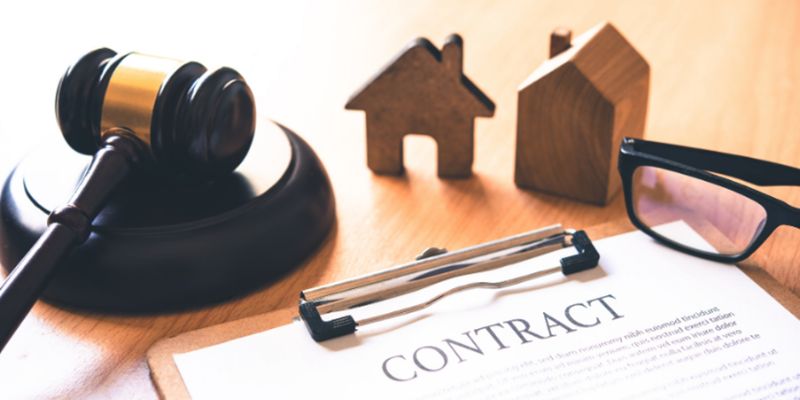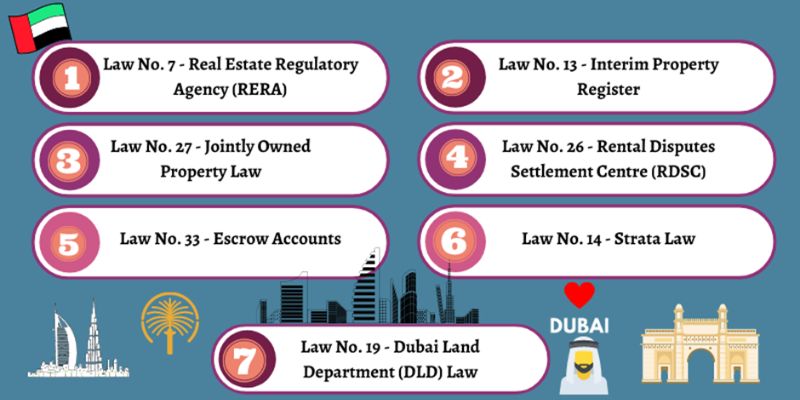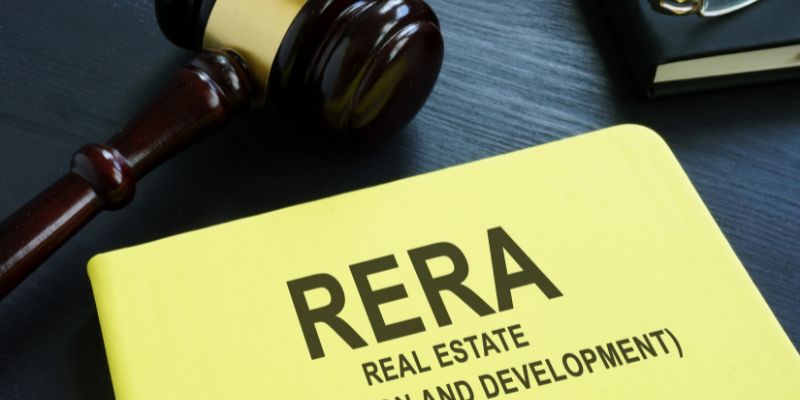Real estate laws play a crucial role in governing the real estate industry, ensuring transparency, protecting the rights of stakeholders, and creating a secure investment environment.
A comprehensive understanding of the applicable laws is paramount in Dubai, where the real estate market is thriving.
Whether you are a buyer, seller, investor, or real estate professional, being well-versed in Real Estate Laws in Dubai can help you navigate the intricacies of the market and make informed decisions.
Dubai has established a robust legal system to regulate the real estate sector, focusing on safeguarding the interests of all parties involved.
These laws cover many aspects, including property ownership, lease agreements, property development, real estate brokerage, and dispute resolution.
Understanding these laws ensures compliance and provides a solid foundation for conducting business ethically and effectively.
One of the key objectives of real estate laws in Dubai is to maintain transparency in property transactions. By adhering to these laws, individuals can safeguard their rights, mitigate risks, and ensure fair treatment in their real estate dealings.
In addition to protecting stakeholders, Dubai’s real estate laws create a secure investment environment. The laws provide a framework that promotes sustainable development, regulates property prices, and encourages foreign investment.
By complying with these laws, stakeholders can contribute to the growth and stability of Dubai’s real estate sector.
List of 7 Dubai Real Estate Laws
Dubai’s real estate sector operates within a comprehensive legal framework that ensures transparency, protects stakeholders’ rights, and fosters a secure investment environment.
Understanding the following real estate laws in Dubai is essential for anyone involved in buying, selling, or investing in properties in the city.
- Law No. 7 – Real Estate Regulatory Agency (RERA)
- Law No. 13 – Interim Property Register
- Law No. 27 – Jointly Owned Property Law
- Law No. 26 – Rental Disputes Settlement Centre (RDSC)
- Law No. 33 – Escrow Accounts
- Law No. 14 – Strata Law
- Law No. 19 – Dubai Land Department (DLD) Law
This list provides an overview of some of Dubai’s essential real estate laws, highlighting their significance and impact on the industry.
1. Law No. 7 – Real Estate Regulatory Agency (RERA)
Law No. 7 established the Real Estate Regulatory Agency (RERA) as the regulatory authority for the real estate sector in Dubai.
RERA plays a crucial role in ensuring compliance with laws and regulations, promoting transparency, and safeguarding the interests of investors, developers, and buyers.
One of RERA’s key responsibilities is the licensing and registration of developers, brokers, and real estate professionals, ensuring that they meet the necessary qualifications and adhere to ethical standards.
RERA also oversees the implementation of regulations related to property sales, leasing, and management, promoting fair practices and consumer protection.
By establishing RERA, Law No. 7 has significantly contributed to maintaining the integrity and professionalism of the real estate industry in Dubai.
2. Law No. 13 – Interim Property Register
Law No. 13 mandates the registration of off-plan properties with the Interim Property Register, operated by the Dubai Land Department (DLD).
This law ensures transparency and protects buyers by requiring developers to register their off-plan projects with the DLD before selling them.
The registration process involves verifying that the developer has obtained the necessary approvals and financial guarantees, assuring buyers that the project is legally compliant and financially secure.
The Interim Property Register prevents fraudulent practices and protects buyers from potential risks associated with off-plan property purchases. It enhances transparency in the real estate market and promotes investor confidence.
3. Law No. 27 – Jointly Owned Property Law
Law No. 27, commonly known as the Jointly Owned Property Law, governs the management and administration of jointly owned properties in Dubai.
This law applies to properties with shared common areas and facilities, such as residential buildings and mixed-use developments. It establishes owners’ associations responsible for the governance, financial obligations, and maintenance of common areas.
The law ensures that owners have a say in decision-making, promotes harmonious community living, and protects their rights. It also sets guidelines for budgeting, service charges, and resolving disputes within the owners’ associations.
Law No. 27 is crucial in properly managing jointly owned properties and maintaining their value over time.
4. Law No. 26 – Rental Disputes Settlement Centre (RDSC)
Law No. 26 established the Rental Disputes Settlement Centre (RDSC) as an efficient and transparent platform for resolving conflicts between landlords and tenants in Dubai.
The RDSC handles a wide range of rental disputes, including issues related to rent increases, eviction disputes, lease disagreements, and maintenance disputes.
It provides an impartial and fair process for both parties to resolve their disputes without resorting to lengthy, costly legal proceedings.
The RDSC aims to protect the rights of both landlords and tenants, ensuring that rental agreements are honored, and disputes are resolved in a timely manner.
Law No. 26 contributes to a more stable and harmonious rental market in Dubai by providing a specialized forum for rental disputes.
5. Law No. 33 – Escrow Accounts
Law No. 33 mandates using escrow accounts in Dubai’s off-plan property sales. This law requires developers to deposit buyers’ funds into separate escrow accounts for each project.
Escrow accounts provide a layer of protection for buyers, as the funds can only be used for the intended project and are subject to stringent regulations. This helps prevent developers from misusing or diverting buyers’ funds for purposes other than the designated project.
Escrow accounts ensure buyers’ money is safeguarded, reducing the risk of fraud and increasing buyer confidence in off-plan property purchases.
Law No. 33 has significantly contributed to enhancing transparency, protecting buyers’ interests, and promoting the stability of the real estate market in Dubai.
6. Law No. 14 – Strata Law
Law No. 14 allows for the individual ownership of units within jointly owned properties, commonly known as strata title ownership. This law grants owners distinct legal titles for their units or apartments within a jointly owned property.
Strata title owners have the right to sell, lease, or mortgage their units, providing them with greater control and flexibility over their property.
They also share ownership of common areas and facilities within the jointly owned property, participating in decision-making processes through the owners’ association.
Law No. 14 establishes the legal framework for strata title ownership, ensuring clear rights and responsibilities for owners while promoting harmonious community living within jointly owned properties.
7. Law No. 19 – Dubai Land Department (DLD) Law
Law No. 19 defines the role and responsibilities of the Dubai Land Department (DLD) in regulating the real estate sector in Dubai.
The DLD is responsible for implementing and enforcing real estate laws and regulations, facilitating property registration processes, and maintaining a comprehensive database of property-related information.
This law allows the DLD to issue regulations and circulars to improve market efficiency and promote transparency.
The DLD plays a crucial role in safeguarding the interests of all stakeholders involved in real estate transactions, ensuring fair practices, and enhancing investor confidence.
Law No. 19 empowers the DLD to regulate and oversee various aspects of the real estate industry, contributing to Dubai’s well-functioning and transparent real estate market.
FAQs – Real Estate Laws in Dubai
1. What are the rules to buy property in Dubai?
To buy property in Dubai, individuals must be at least 21 years old, possess a valid residency visa or passport, and conduct the transaction through a registered real estate agent or developer.
2. Can foreigners own property in Dubai?
Yes, foreigners can own property in Dubai in designated freehold areas and through long-term leasehold arrangements in certain areas.
3. Do you get residency if you buy property in Dubai?
Yes, purchasing property in Dubai can provide eligibility for a residency visa, subject to certain conditions and requirements.
Conclusion
Understanding the real estate laws in Dubai is essential for anyone involved in the property sector, including investors, developers, buyers, and tenants.
These laws serve as the foundation for maintaining transparency, protecting the rights of stakeholders, and establishing a secure investment environment.
By having a comprehensive knowledge of these laws, individuals can confidently make informed decisions, mitigate risks, and navigate the complex real estate landscape in Dubai.
Familiarizing yourself with real estate laws allows investors to understand Dubai’s legal framework and requirements for property ownership, transactions, and development.
Given the complexity of real estate laws, individuals should seek professional guidance from legal experts who specialize in Dubai’s real estate regulations.
Consulting with lawyers, real estate agents, and relevant authorities can provide valuable insights and ensure compliance with the applicable laws.
If you’re inspired to pursue a career in real estate or enhance your existing knowledge and skills, ThinkProp’s real estate training programs are here to support you.
Whether it’s navigating the licensing requirements or growing your business, their real estate professional courses and expertise to build a profitable database as a real estate agent.
Ultimately, adherence to the real estate laws in Dubai fosters a thriving and transparent property market, attracting both local and international investors.
By upholding the principles of transparency, accountability, and protection of stakeholders’ rights, the real estate laws in Dubai contribute to a robust and sustainable property sector.








